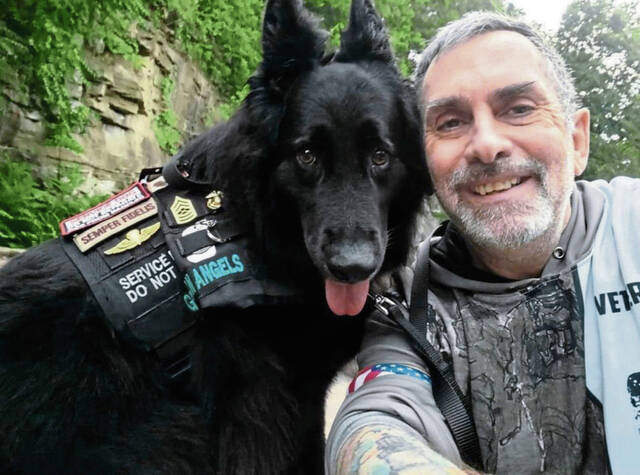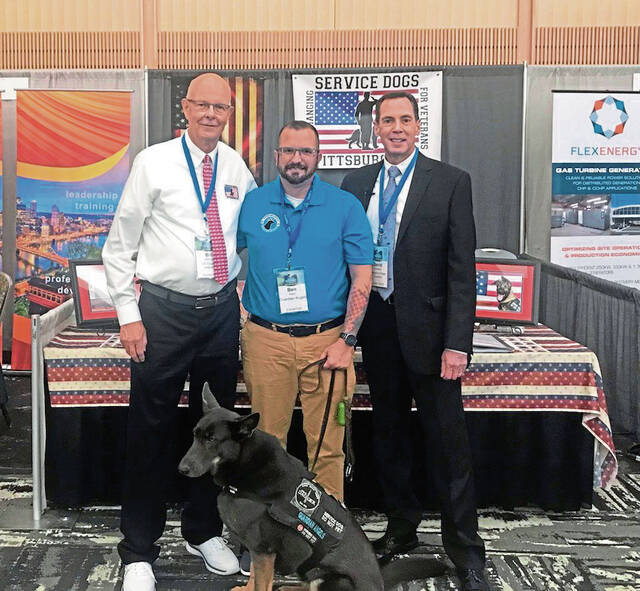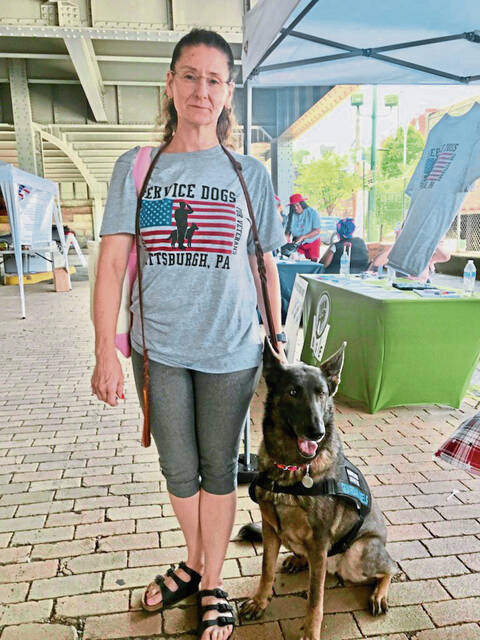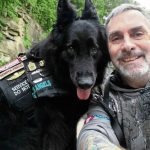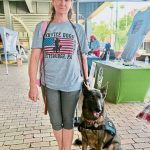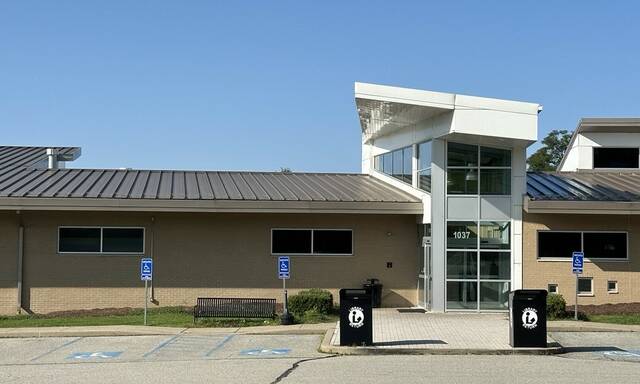When Bill Jeffcoat, a Vietnam veteran and former canine handler, was forced to have his dog Fraulien euthanized after the Vietnam War, it had a tremendous impact in his life.
He’s dedicated a big part of his post-service life to bringing the postive impact of having an animal companion to other veterans. Jeffcoat of Plum said, “I walk this Earth strictly because of a dog. So, no matter what we were doing out in the field — search and destroy, recon — my dog was my lifeline.”
It was that connection that got him involved with Life Changing Service Dogs for Vets, a Pittsburgh-based organization that matches up military veterans living with PTSD, traumatic brain injury, seizure disorders, insulin dependence and/or mobility issues with trained service dogs. These dogs help the vets navigate living with a post-military service medical disability. Jeffcoat serves as the organization’s president.
Founded in 2016 by former Army Lt. Tony Accamando and former Air Force fighter pilot George D’Angelo, they partnered with Guardian Angels Service Dogs in Williston, Fla. — an organization responsible for the actual training of the dogs — and made it their mission to pair 22 in-need vets with dogs over a 22-month period. The significance of the 22 comes from the Department of Veteran’s Affairs reporting that on average, 22 U.S. military vets commit suicide every day.
The group’s challenges are two-fold. First, it was raising the money. A trained service dog costs $25,000 and takes two years and 1,500 hours to train. Life Changing Service Dogs matches in-need veterans at no cost, so that was a lot of money to raise. The group received contributions from a wide array of organizations, including The Pittsburgh Foundation, Armstrong Utilities, Colcom Foundation, PNC Foundation, the Marcellus Shale Coalition, the Pittsburgh Pirates, Penguins and Steelers, along with various local churches, VFWs, schools, Rotary Clubs, and a super bingo foundation. They managed to raise $1.3 million for their efforts.
The second challenge was matching up the dogs with the veterans. The group was able to match dogs with 30 veterans, and in fact were so successful that they exceeded the training capacity at Guardian Angels. As a result, Life Changing Service Dogs has updated its mission to build a campus locally in the Pittsburgh area where they can breed, raise and train medical service dogs. It recently purchased 102 acres in Robinson Township in Washington County off of Montour Trail and plan to break ground this coming spring for a four-building unit and kennel.
There’s currently a wait list of more than 300 veterans looking for a service dog — that keeps Life Changing Service Dogs motivated and involved in local events. It recently held a fundraising bingo at the Penn Hills No. 7 Volunteer Fire Company. The group is also partnering with Fleet Feet Pittsburgh to hold an Ugly Sweater Run in Bethel Park on Nov. 28 featuring veterans with their service dogs. A Holiday Lights Run, also with Fleet Feet and more veterans with dogs, is set for Dec. 16 on the North Shore.
Another big aspect of their mission is educating the public on the challenges the veterans face upon returning to civilian life after their service. “A lot of these veterans are doing multiple tours, and 30 percent of them come back with traumatic brain injuries along with memories of life-threatening events and flashbacks. As a result, they self-isolate and detach with shame and survivor’s guilt. They have a high divorce rate, and some even become suicidal,” Jeffcoat said.
One of the local recipients of a service dog, Craig Hodgkins, a Marine combat vet and Scott resident who spent 21 years in military service, was dealing with PTSD, anxiety, depression and symptoms of Parkinson’s. Before receiving his service dog, his civilian life was turning into a struggle.
“It had got to the point that I was a hermit. I pretty much lived in the basement, and I didn’t want to see anyone. I didn’t feel like I could handle situations, which is tough for a former miltary guy used to handling anything and helping other people. I was having memory issues, and my head was always on a swivel. It had gotten to the point where I was ready to give up.”
However, a year and a half ago, Hodgkins was matched with Foxy, a long-haired German shepherd that was specifically trained on PTSD, and she immediately had a positive effect on his life. Since receiving the now-6-year-old Foxy, Hodgkins went on his first walk in five years. When he has night terrors, Foxy is right there licking his face, providing support. She woke him out of sleep when there was an apartment fire in another building close by and even alerted him ahead of time when he was suffering from internal bleeding. “She just knew solely on instinct,” Hodgkins said.
In addition, she’s able to alert other people, particularly relatives, when Hodgkins is experiencing anxiety or other symptoms. Hodgkins said, “Now, things aren’t as bad. I’m not afraid to go to sleep because I know she is right there. The minute I get anxiety, she’s got my back. I don’t have to constantly look around in hypervigilance. She even picked up on my vertigo. I had fallen, and she gave me just enough leash pressure to get me safely back home.”
Deborah Ritchie, who served in the Army in logisitics overseas in Germany, was paired with 5-year-old German shepherd Navy, who also is trained in wide variety of ways to help when things go wrong. Navy helps the Cranberry resident with guarding, shielding, waking her from nightmares, alerts her to upcoming panic attacks and helps her balance. Navy is always looking out for changes in the environment that could set off a reaction. Ritchie said, “It’s been a blessing. You don’t realize how much you need one until you have one. You don’t know how you lived without one before, and it’s just so nice that there’s someone looking out for us.”
It’s a long process for these dogs to be fully trained to help, however, as they must learn how to get medication and water and provide the array of support that they give to their humans. Even the prospective owner must go through some training before receiving a dog, and all owners must sign an agreement, which stipulates pet insurance, veterinary care, exercise and even the type of dog food that the animal must eat.
“To see the bond that these dogs make with these veterans, they’re more than life-changing, they’re life saving,” Jeffcoat said.


